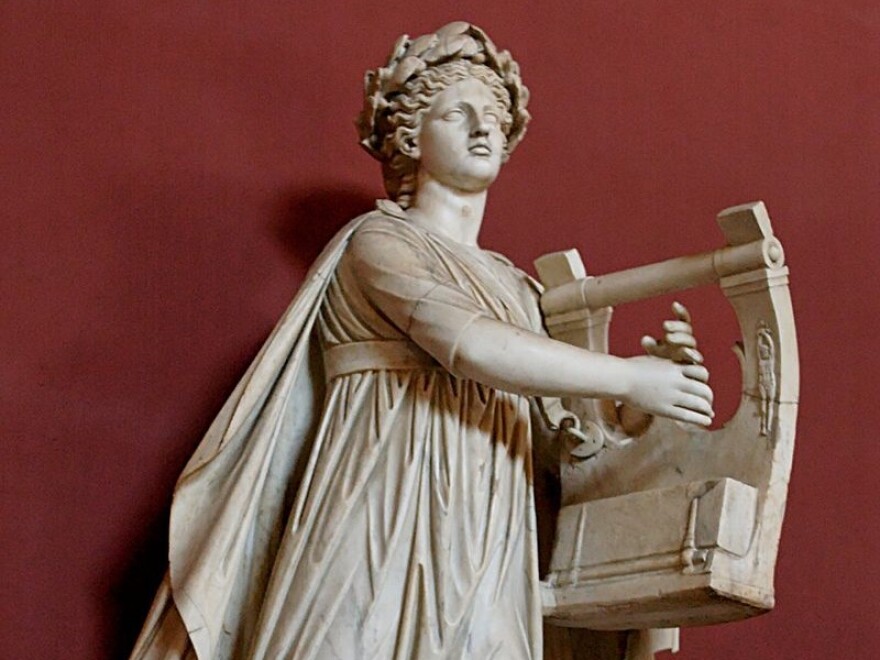During the time of Alexander the Great, the city of Athens gave rise to something new in Greek culture. Up to this point, music was seen as subordinate to words; melody and rhythm worked in service to text or “logos.” Around 5th century BCE “The New Music” movement challenged these ideas introducing songs without words, new musical tools like modulation, intense competitions and a new instrument, the cithara. The cithara was a concert lyre with as many as eleven strings. The greatest virtuoso on this new instrument was the famed Stratonicus of Athens; at least that’s how he tells the story.
Loading...
Stratonicus introduced polychordia, playing more than one note at a time. He was a master at “bending” which was another word for musical modulation, using multiple scales or modes within a single piece. Startonicus was a well-known teacher to many students and inspired a generation of cithara players. He was also a music theorist, who developed his own visual representation of musical scales. Stratonicus made a living by traveling across Greece competing and winning musical competitions.
However, it wasn’t just his skills on the cithara that made him famous. He was also known for his sharp tongue and biting wit. For example, Stratonicus was once asked why he traveled from city to city instead of settling down in one place. His response was, “The Muses had awarded him all the Greeks as his source of support, and that he was allowed to extract pay from them as a consequence of their lack of musical talent.”
This verbal aggression was a way of gaining attention, creating buzz and publicity through beefs and controversy; a practice all too familiar today. Stratonicus didn’t seem to like any place he visited, or any performer he encountered. Once, Stratonicus was asked to listen to another musician play. After the performance he quoted Homer and said, “The father granted him one request, but refused the other.” When asked what he meant by that Stratonicus replied, “He granted him the ability to play the cithara badly, but refused him the ability to sing well.” On another victorious occasion, Stratonicus was awarded a trophy in the sanctuary of Ascelpius. He had the trophy inscribed, “Stratonicus, from the spoils of bad cithara-players.”
Stratonicus insulted anyone, of any stature; the rich, the poor, the meek and the powerful. In fact, there are two contradictory accounts of Stratonicus’ tongue becoming fatally loose. In one story, he was drowned for insulting Queen Biothea. In the other, he poked fun at the son of the Cyprian king Nicocles and was forced to drink poison. Perhaps he should have played his cithara more and used his tongue less.
Learn more about Stratonicus in Lewis Holmes’ book The Mystery of Music.
Timeline is an exploration into the development of Western music.




